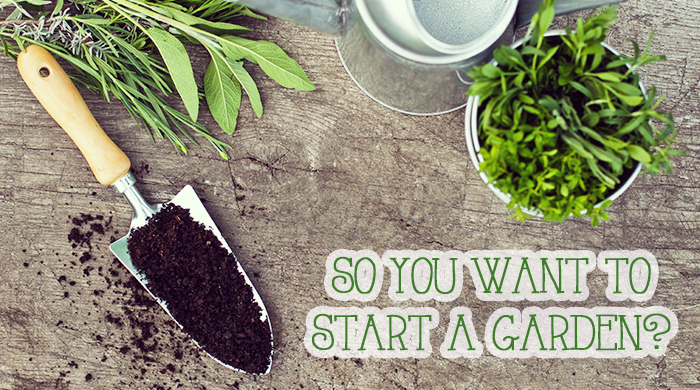Home & Garden, Lifestyle
Gardening Tips for Beginners


Spring is the time of new beginnings. And if you’re thinking of taking advantage of the new season by spending time in your yard and starting a garden, we have a few tips for you. Make sure to check out all the stores that have Double Cash Back during Home and Garden Week over at Ebates! You’ll find some great deals on all the gardening tools you need a stores like Home Depot, Sears, and Walmart.
1. Plan
The first step may seem obvious but it is important! Plan what you want. Do you want a flower garden, vegetable garden or herb garden? Keep in mind that it is better to start small. You can always add more once your garden starts to be successful.
2. Choose a place to plant
Do you have a sunny or shady space to plant? This can be a deciding factor on what to plant as most vegetables and some flowers require about six hours of sun each day. So if you don’t have a lot of sun, look for plants that can tolerate the shade. Make sure that you plant your garden where you can’t ignore it. If your garden starts to need attention, you’ll notice it faster than if you put it in an area you rarely see daily.

3. Prepare the ground
Get rid of the sod that is covering the area you want to plant and spread compost to improve the soil. Using an organic material will boost your soil. Using compost, dry grass clippings, decayed leaves, or old manure will improve the soil and make a perfect starting point for your garden.
4. Decide on your plants
Now that you’ve picked your area and what type of garden you want to have, you’ll want to pick what you want to plant. Some plants are harder to grow and maintain than others, so we suggest these easy-to-grow plants for beginners. If you’re planning to plant flowers, try out marigolds, geraniums, pansies, or daylilies. If you’re planning to plant vegetables, go for peppers, tomatoes, lettuce, and cucumbers.
5. Put them in the ground
Learn about which plant you’ve chosen and when the best time to plant them is. Some plants and vegetables are picky about the cold and you will want to wait until all frost has passed. Some plants will fare better planted in autumn or late winter. Some plants, such as lettuce and sunflowers, are easy to grow from seeds. But you may find that it is easier for some flowers to buy a set plant or transplant and just pop it in the ground and grow from there.

6. Water your plants
You’ll want to water your seedlings daily, as they should never dry out. As they grow, you can taper this off. The new transplants will need watering every other day until their roots become established into the ground. After the initial process, watering depends on the humidity of your climate, soil, and how often it rains. If you see that your plants are starting to wilt, they are in need of water. Slowly water so that it is absorbed and does not run off.
7. Keep it up
You’ve started your garden! Keep in mind that the garden will take work. You need to water when needed and pull weeds before they grow large and overtake your garden. In the end, just stop and smell the roses. Or whatever you choose to plant!
Do you enjoy gardening? Are you planning to start one this year? Let us know by leaving a comment!
Stay in the loop to hear about great deals and tips!
![]()

![]()
![]()
Prices and Cash Back Percentages are subject to change.

From the latest tech to the hottest fashions and everything in between, the editors at The Smart Shopper are in the know and ready share their expertise. Check out our posts on shopping secrets and product trends for those who live for a little retail therapy.
Join The Conversation